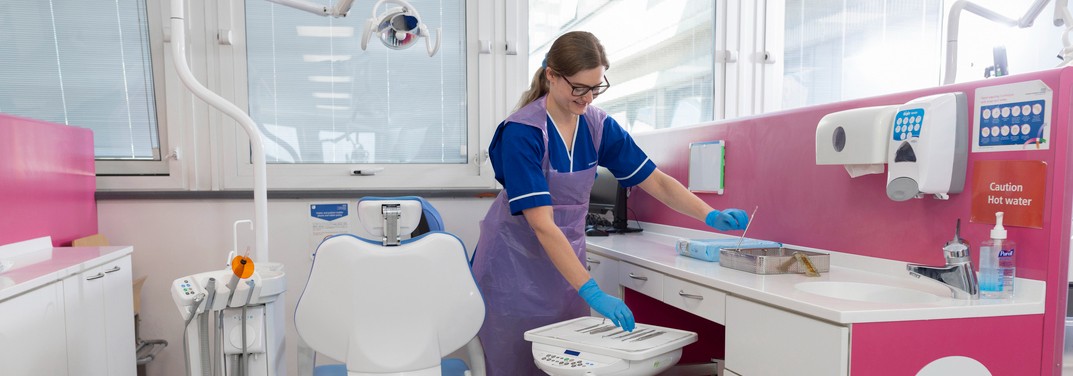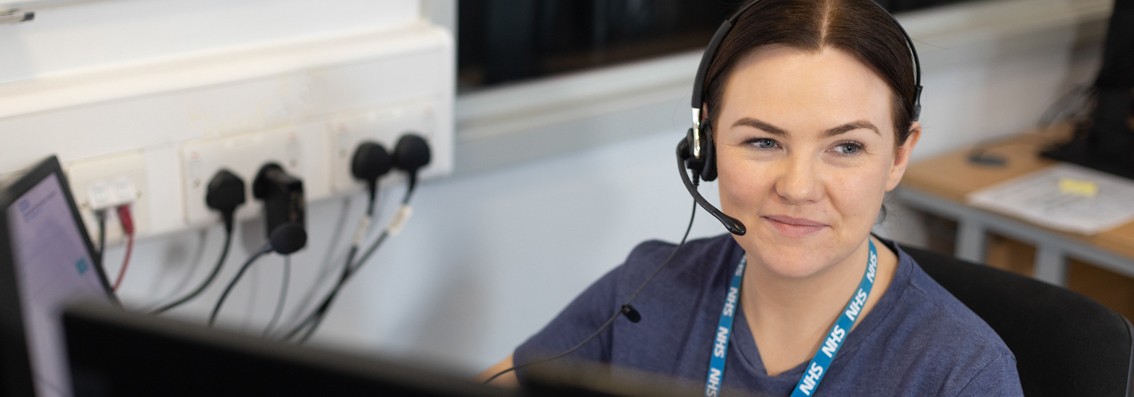What does a role in Dentistry involve?
Dental Hygienist
You'll help children and adults look after their teeth and gums. Sometimes you might be working on a one-to-one basis while on occasion you'll work with groups of people.
Dental Nurse
You may help with reception work and could help any member of the dental team - dentists, clinical dental technicians/technologists, hygienists and therapists – treat patients of all ages.
Dental Technician
Dental technicians (or dental technologists as they are often referred to) make the dentures, crowns, bridges and dental braces that improve patients’ appearance, speech and ability to chew.
What qualifications do I need?
Dental Hygienists will need five GCSE subjects graded 4-7 or A-C, plus two or three A levels (depending on the university) or a recognised dental nursing qualification to get on to a dental hygiene course.
You can usually work as a trainee dental nurse without academic qualifications but to progress to being a qualified dental nurse, you'll need to study for a course in dental nursing, either part or full time, that is approved by the General Dental Council. Exact course requirements will vary from provider to provider, but a minimum 2 GCSEs (4/C grade or above) in English language and maths or a science subject are usually required for part-time courses.
Full-time degree level courses may require A-levels or equivalent level 3 qualifications. A level 3 apprenticeship in dental nursing is an additional way to gain the required qualifications in dental nursing.
To work as a dental technician/dental technologist, you must be registered with the General Dental Council (GDC). GDC-recognised courses lead to qualifications such as:
- The BTEC National Diploma in Dental Technology where you'll normally need at least four GCSEs at grade 4-7 or A-C,
- A foundation degree where you'll normally need to be employed in a trainee dental technician role or apprenticeship
- A BSc (Hons) degree in dental technology where A-levels or equivalent qualifications are usually required.
You can take the BTEC National Diploma or foundation degree course on a full-time basis or by obtaining a post as a trainee dental technician and taking the course part time. BSc (Hons) degrees are usually full-time at a university/dental school.
What will I earn and what are the benefits?
All our dental roles are on the Agenda for Change (AFC) pay system and typically colleagues work standard hours, 37.5 a week.
Dental hygienists start at band 5 or 6. Dental nurses usually start between band 3 and band 4, with senior dental nurses starting at a band 5 or higher and dental technicians at band 5.
You’ll also have access to our generous pension scheme and health service discounts, as well as 27 days of annual leave, plus bank holidays, which increases the longer you’re in service.
To discover more additional benefits unique to Liverpool University Hospitals NHS Foundation Trust, please visit our staff benefits page.











